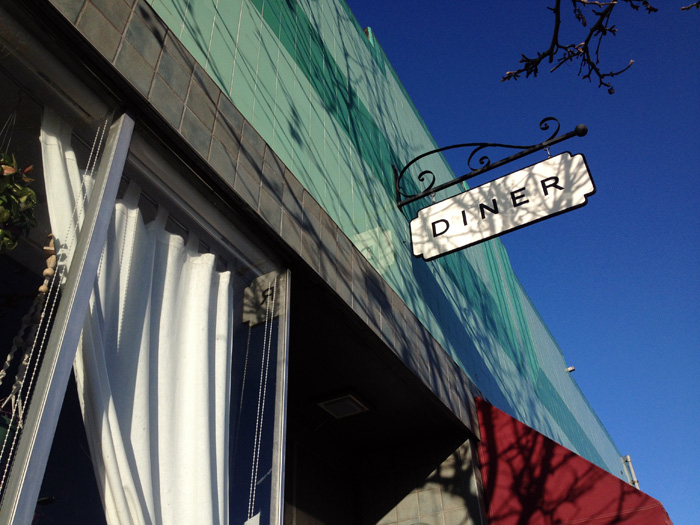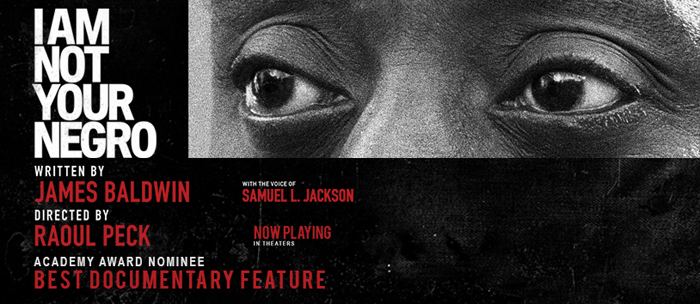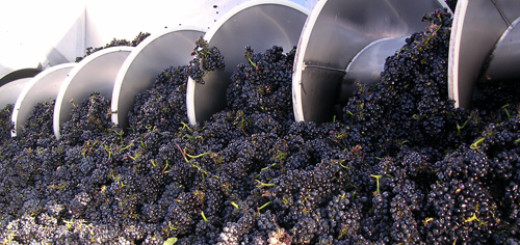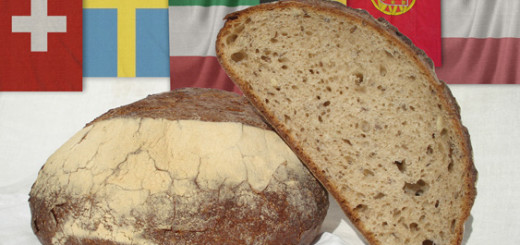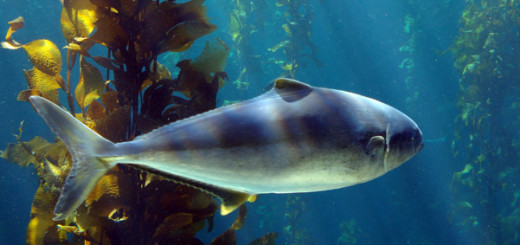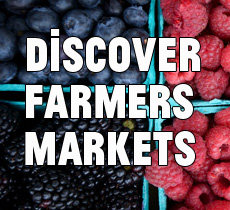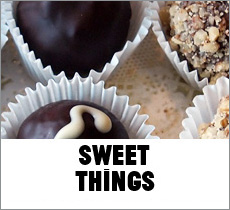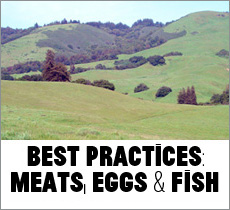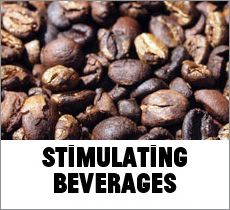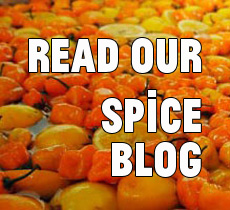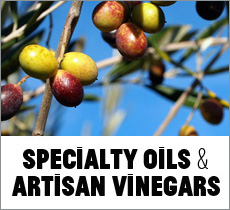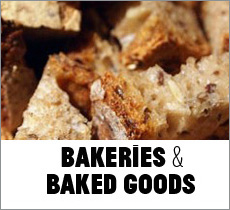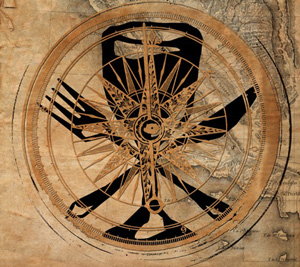Breakfast and a Movie with James Baldwin
Greetings, foodies. We’re back: did we miss anything? Aside from the weirdest election campaign and presidential transition in our nation’s history, that is.
We’ve been telling the stories of sustainable and regenerative food systems in California’s Central Coast for more than six years, and we have no plans to stop providing this resource for discovering mindful local producers and retailers. We’re committed to keeping our index up-to-date and always appreciate recommendations from readers. We strive to present information on pro-social businesses and organizations that walk the healthy food system talk. Indeed, we seek out social good food and drink wherever we travel in our beloved, complicated country.
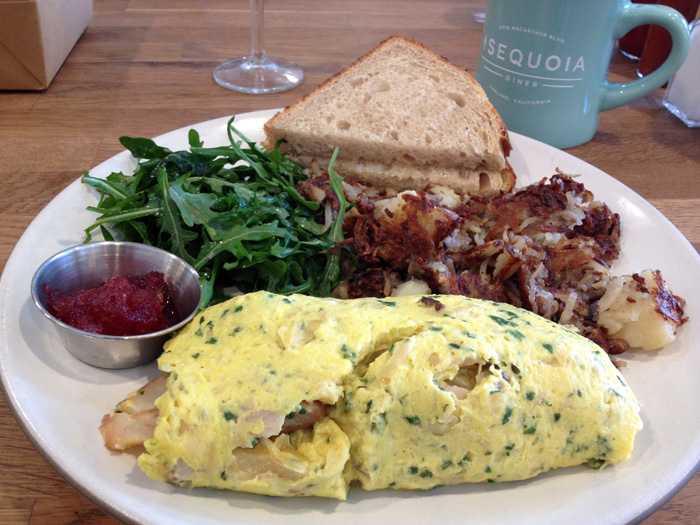
Smoked rockfish omelette with carmelized onions and crème fraîche, hash browns, arugula salad, toast, and a side of blood orange pulp
Sequoia Diner in Oakland: Pro-Social Foodie Spot
While on a recent visit to the East Bay, we discovered an outstanding Oakland diner that knocked our socks off throughout a creative, flavorful, and well executed breakfast. Featuring delicious fare produced with quality ingredients, fresh squeezed mimosas, and signs of pro-social solidarity for a diverse community, Sequoia Diner in the Laurel district of Oakland was fantastic. Get there right before opening for a chance at an early seat and one of their impressive pastries.
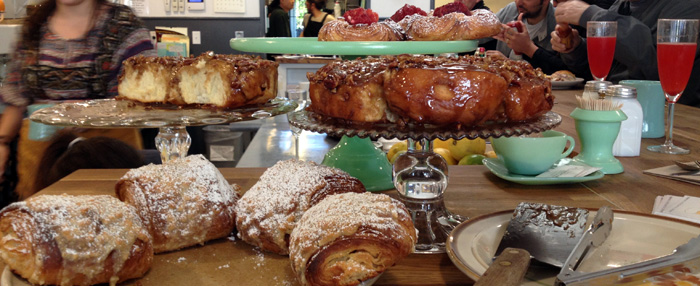
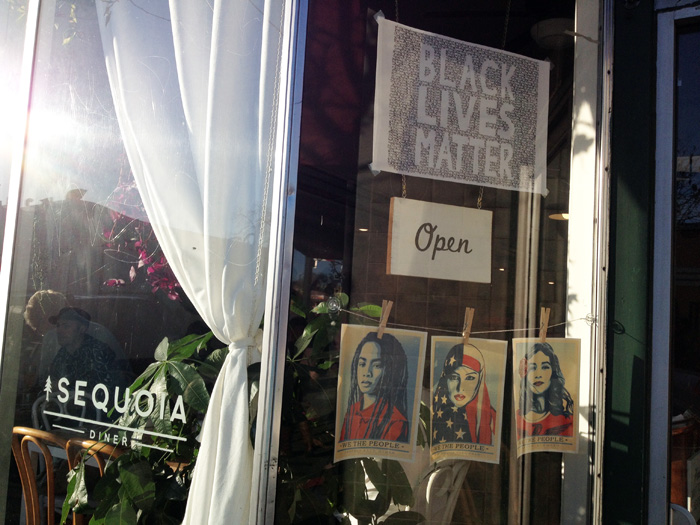
We had traveled to the Bay Area in February 2017 to visit friends and catch a Berkeley screening of Raoul Peck’s excellent documentary I Am Not Your Negro about James Baldwin, Malcolm X, Dr. Martin Luther King Jr. and Medgar Evers. This powerful film captures the trauma of Baldwin and the country absorbing the blows of their violent deaths across the turbulent 1960s as well as Baldwin’s tireless efforts to help make America more self aware of our collective internalized oppression. James Baldwin is my patron saint of bravery, empathy, and truth.
We highly recommend this film to illuminate and inspire a pro-social and clear-eyed way forward in these strange, unsettling days where weaponized racist idiots can’t tell an Indian from an Arab, the for-profit prison industry revs up for the main deportation event, and pathetic nazi vandals engage in property damage under cover of stupid. Oscar-nominated I Am Not Your Negro almost seemed to end a few moments too soon, until one realizes that we—the audience—now become tasked with the work of seeing the racial reality in our country anew so we can begin to heal ourselves.
After the 2016 election, did you feel like you had to do something to change the course of our country? I decided to join our local chapter of the NAACP and serve as a witness—like James Baldwin—in writing against acts of injustice in our community and country. As a white person, I recognize that the role of witness is one that white people can and should play in the telling of these stories so we can all move toward a more advanced state of compassionate society. One story from Doria Robinson of Urban Tilth in Richmond still haunts us: this African American woman stopped me cold at EcoFarm in 2016 when she said on a panel about social justice in the food movement that every family she knows has been affected by tragic violence. Not a few or a handful: all of them. I doubt many white people could say the same thing.
My literary training and academic background encourages me to believe in the power of the written word to influence readers toward openness and empathy. We’re with Balwin who said, “I love America more than any other country in this world, and, exactly for this reason, I insist on the right to criticize her perpetually.” We love our country and know it can do so much better than indulge its lowest common denominator citizens and their ugly racist behaviors.
EcoFarm Cultivates Diversity in Troubled Times
James Baldwin would have felt welcome at this year’s Ecological Farming conference in the northern Central Coast. In January, we traveled to Pacific Grove for the latest iteration of EcoFarm and were pleased to see several sessions providing a more diverse collection of voices and perspectives than we’ve seen in the past with this gathering of regenerative food advocates. The conference theme this year was “Cultivating Diversity.” We attended the following sessions:
- Diversify EcoFarm: What Will It Take?
- keynote by Malik Yakini of the Detroit Black Community Food Security Network and D-Town Farm
- Cultivating Diversity in the Ecological Farming Community with Malik Yakini of the Detroit Black Community Food Security Network and D-Town Farm, Doria Robinson of Urban Tilth in Richmond, and Hank Herrera of New Hope Farms in Pinole, among others
- Farming Stories: The History of Japanese American Farmers in California with Nina Ishikawa of the Berkeley Food Institute, Mas Masumoto of Masumoto Family Farm in Fresno, James Nakahara of Pie Ranch in Pescadero, and Molly Nakahara of Dinner Bell Farm in Chicago Park
- Fair Food: Exploring the Inequities and Racial Issues Inherent in the Farming Movement with Ahna Kruzic of Food First in Oakland and Rosalinda Guillen of Community to Community in Bellingham, Washington
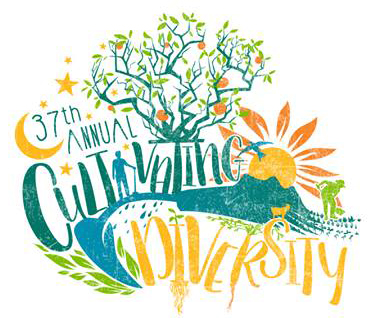 Hats off to the volunteer organizers of this year’s EcoFarm who worked hard to include many lesser-heard voices in several presentations across the conference. How unexpected and impressive to see the acknowledgement of unfair practices and stubborn prejudices within the sustainable, local food movement itself as well as across our country’s economy and history as a whole. EcoFarm encouraged public discussion about its own challenge and imperative as an organization to integrate more diverse viewpoints and experiential insights of non-white participants, presenters, and leaders. Ecological farming requires diversity for a healthy ecosystem and so does the Ecological Farming Conference. We commend EcoFarm for having a look at their own practices to consider if they are themselves “Cultivating Diversity” as an organization. Very meta.
Hats off to the volunteer organizers of this year’s EcoFarm who worked hard to include many lesser-heard voices in several presentations across the conference. How unexpected and impressive to see the acknowledgement of unfair practices and stubborn prejudices within the sustainable, local food movement itself as well as across our country’s economy and history as a whole. EcoFarm encouraged public discussion about its own challenge and imperative as an organization to integrate more diverse viewpoints and experiential insights of non-white participants, presenters, and leaders. Ecological farming requires diversity for a healthy ecosystem and so does the Ecological Farming Conference. We commend EcoFarm for having a look at their own practices to consider if they are themselves “Cultivating Diversity” as an organization. Very meta.
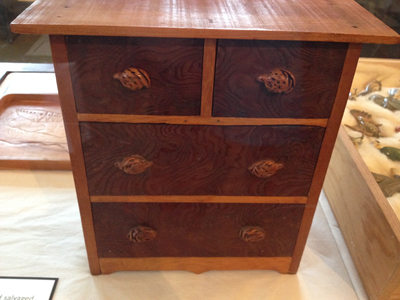
A cabinet using peach pit pulls and salvaged wood from shipping crates made by a Japanese American from San Luis Obispo County imprisoned during WWII
So grateful but difficult to hear the stories of Japanese American families confronting and speaking up about FDR’s executive order 9066 and the toll this terrible incarceration experience wrecked on their intercultural cohesion across generations not to mention their family economies. While we wept during this deeply affecting panel on the Japanese American loss of land and identity written into existence by our 32nd president of the United States, how horribly ironic that, at that very moment, the 45th president was signing an executive order that banned people from seven Muslim-majority countries from immigrating to or visiting the United States. Demonizing communities of color to make cheap fear points with a racist faction of our society: it was wrong in 1942 and it’s wrong in 2017.
Pro-Social Good Food and Drink
We encourage all our neighbors and fellow citizen-consumers to support businesses like Oakland’s Sequoia Diner, Ojai’s Farmer and the Cook, Santa Cruz’s Charlie Hong Kong, and other pro-social food and drink operations that encourage openness, positive community, and healthy delicious food and drink. Remember how many people filled the streets in January? That’s our citizen-consumer power right there. Money is the only language some people speak and it is always powerful. It’s our responsibility to wield it for good by supporting producers and retailers who work hard every day to provide better food and drink options for citizen consumers like us and our neighbors. We’re so numerous and our potential citizen-consumer power is immense. Will we wield it?
The anti-social racist faction of American culture on display in I Am Not Your Negro is most definitely a bad look and will not be tolerated by us or the many other Americans who refuse to allow this violent and fearful behavior to become the societal norm on some hapless drift toward North American authoritarianism.
No Thank You.
It has been shocking to see this ugly racist retro look come back into fashion on the backs of a slithering gang of weak and frightened people who have nothing left to wield but the color of their skin. We support pro-social policies in our communities not this racist bullshit.
- It can happen here: Central Coast farmworker parents of school-age children are worried that they might be separated from their children if Immigration and Customs Enforcement (ICE) officials swoop in and pick up them up in a raid while they’re at work in the fields.
- It has happened here: before World War II, in the pastoral Central Coast almost all of the arable land along the Los Osos Valley and between Cayucos and Cambria was owned and worked by Japanese American farming families until they were relocated and incarcerated.
Land and resource theft mixed with racial animus: we’ve heard this story before, America. We need to learn how to close the book on these stories as individuals, as communities, and as a nation. We must break bread together across cultures more often than we do: openness and diversity taste so much better than fear. Dialogue is delicious and exploring a new part of the world through food and drink makes learning about others enjoyable and satisfying. Check out #ImmigrationIsTasty for stories, recipes, and insight into a wider world of shared humanity and pro-social food & drink.

